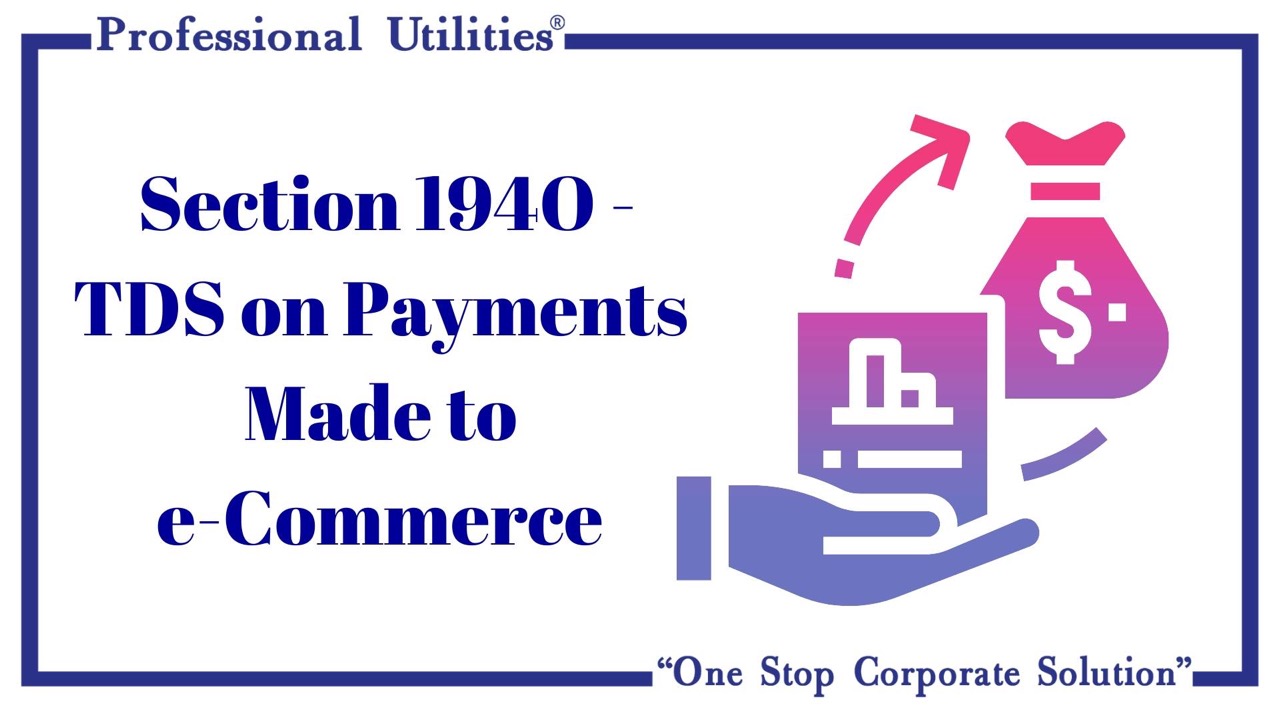
1. Who are E-Commerce Operators and Participants?
E-Commerce Operator: An e-Commerce operator is a person who owns, operates, or manages a digital/electronic facility for the sale of goods and services. He is responsible for making payments to the e-Commerce participant on such sales.
E-Commerce Participant: An e-Commerce participant is a person who sells goods, services, or both through an electronic facility provided by an e-Commerce operator. He must be a resident of India.
2. Scope of Section 194O
E-Commerce operators are required to deduct TDS @1% at the time of credit of the amount of sale of goods, services, or both to the account of an e-Commerce participant or at the time of payment, whichever is earlier.
Resident Individual or HUF: TDS is not required if the gross amount of sale during the financial year does not exceed ₹5 lakh and the PAN/Aadhaar is furnished by the participant.
No PAN/Aadhaar: If PAN or Aadhaar is not furnished, TDS must be deducted at 5% under Section 206AA.
Non-resident Participant: Section 194O does not apply as the participant must be a resident of India.
Example: XYZ, a proprietary firm, sells products on Flipkart. A buyer purchases a product worth ₹50,000 on 1 January 2020. Flipkart credits XYZ's account on 1 January, while the customer pays directly to XYZ on 15 January. Flipkart must deduct TDS @1% on ₹50,000 on 1 January 2020 (credit date).
3. Purpose of Section 194O
Section 194O was introduced to widen the TDS base by including e-Commerce participants. The growing popularity of digital platforms has made it easier for buyers and sellers to connect, but harder for the government to track tax liability of small sellers.
- Sellers' view: Lower setup cost and easier access to buyers.
- Buyers' view: Easy product comparison and wide variety.
Due to increased e-Commerce activity, many small sellers were escaping tax liability by not filing returns. Section 194O brings them into the tax net.
4. Exceptions to Section 194O
- Non-resident e-Commerce participants are exempt from this section.
- The ₹5 lakh threshold applies only to resident individuals and HUFs.
5. Law Before Section 194O
Previously, there was no TDS on payments to e-Commerce participants. They were required to file their own income tax returns. Many small participants avoided this, leading to tax evasion.
6. Conclusion
Section 194O helps reduce tax evasion and increases government revenue by ensuring that e-Commerce participants are brought under the tax base through TDS deduction by platform operators.
Why Professional Utilities?
At Professional Utilities, we leverage our industry knowledge and expertise to help businesses navigate complex regulations, minimize risks, and optimize operations for maximum efficiency and profitability.

One Stop Corporate Solution

PAN India
Services

Free Expert
Assistance

Google Verified
Business

Dedicated Support
Staff


.svg)








